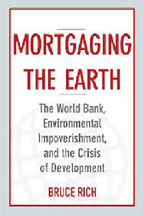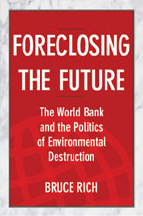- About
- Books
- Articles
- Insights Insights
- Search Search
- Contact Contact
Drawn to improbable challenges, author and lawyer Bruce Rich has fought for higher environmental and social standards in international finance, and written books on the World Bank as well as on ancient Indian political philosophy, Buddhism and the crises of 21st Century globalization. He is working on a new book exploring the dilemmas of our interdependent yet fractured world through the lenses of history, travel, and philosophy…
Lessons for environmental and social sustainability in a small country--and no, it's not Denmark or New Zealand! The 21st Century is not working out the way many of us hoped: we witness the failure of nations and politicians to address the climate crisis that threatens us all, as well as growing calls for an economic model that will give greater priority to social cohesion, community, and long term environmental...

Bruce Rich traveled to Orissa in eastern India and gazed upon the rock edicts erected by the Indian emperor Ashoka over 2,200 years ago. Intrigued by the stone inscriptions that declared religious tolerance, conservation, nonviolence, species protection, and human rights, he was drawn into Ashoka’s world. Ashoka was a powerful conqueror who converted to Buddhism on the heels of a bloody war, yet his empire rested on a political system that prioritized material wealth and amoral realpolitik. This system had been perfected by Kautilya, a statesman and political genius who wrote the world’s first treatise on economics. Both addressed the choice between political realism and idealism, the role of force and violence in international realtions, and the tension between economics and ethics. In this powerful critique of the current wave of globalization, Rich urgently calls for a new global ethic, distilling the messages of Ashoka and Kautilya while reflecting on thinkers across the ages from Aristotle and Adam Smith to George Soros.

Mortgaging the Earth exposes the systemic record of failed projects and misplaced priorities in the operations of the world's preeminent international development institution, the World Bank.

Foreclosing the Future reveals the World Bank as a microcosm of global politics, where governments and markets are failing to address the most urgent challenges facing our world.